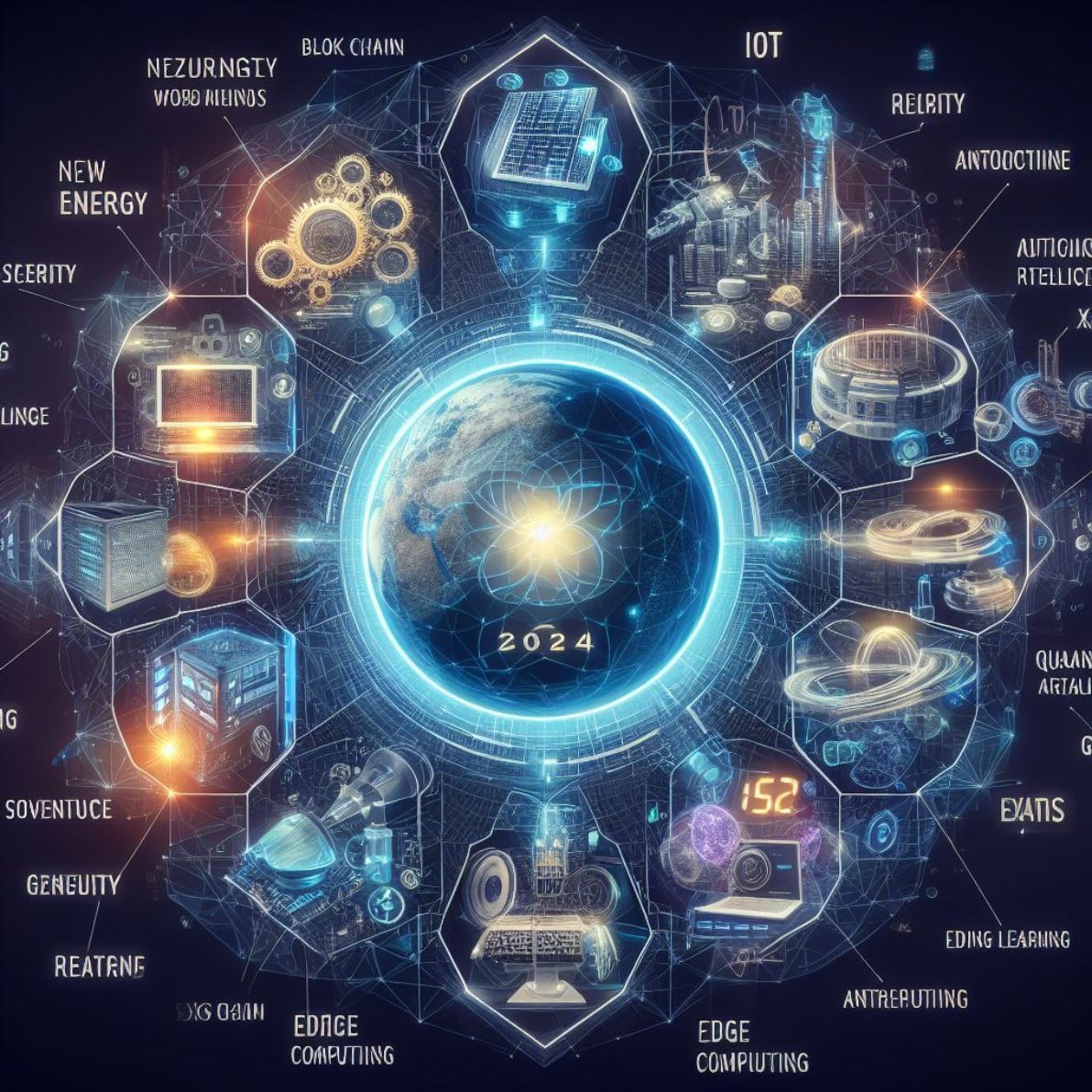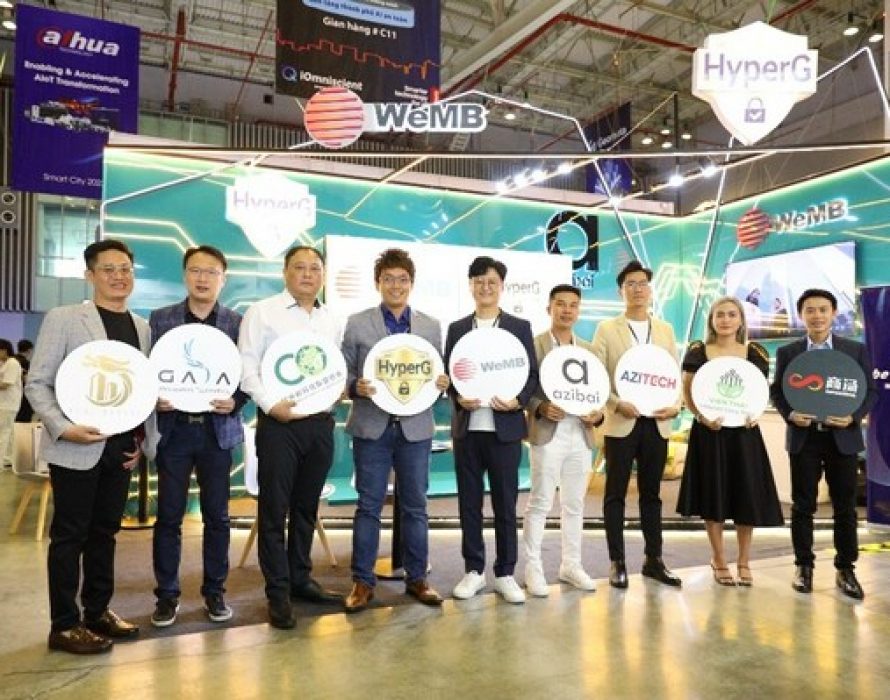Dive into the world of cutting-edge technology with a focus on emerging smart tech innovations in Asia. From AI developments to IoT integration, this topic delves into the exciting landscape of technological advancements reshaping the region.
Get ready to uncover the key areas where these innovations are revolutionizing industries and discover examples of groundbreaking technologies making waves in Asian countries.
Overview of Emerging Smart Tech Innovations in Asia

Asia is currently at the forefront of smart tech innovations, with several countries leading the way in developing cutting-edge technologies that are transforming various industries. Key areas where these innovations are making a significant impact include healthcare, transportation, agriculture, and manufacturing.
Healthcare Innovations
In countries like Japan and South Korea, there has been a rapid adoption of telemedicine and remote monitoring technologies, allowing patients to receive medical care from the comfort of their homes. Additionally, AI-powered diagnostic tools are being developed to improve the accuracy and efficiency of medical diagnoses.
Transportation Innovations
China is leading the way in the development of smart transportation systems, including the implementation of high-speed rail networks and the integration of AI for traffic management. Countries like Singapore are also focusing on the use of autonomous vehicles to enhance transportation efficiency and reduce congestion.
Agricultural Innovations
In India and Israel, there is a growing emphasis on leveraging smart technologies to improve agricultural practices. This includes the use of drones for crop monitoring, IoT devices for soil analysis, and AI algorithms for predictive analytics to optimize crop yields.
Manufacturing Innovations
Countries like Taiwan and South Korea are known for their advancements in smart manufacturing, with the implementation of Industry 4.0 technologies such as robotics, IoT, and big data analytics. These innovations are revolutionizing traditional manufacturing processes and increasing productivity and efficiency.
Internet of Things (IoT) in Asia
The Internet of Things (IoT) is rapidly gaining traction in Asia, with various sectors embracing this technology to enhance efficiency, productivity, and connectivity.
Integration of IoT in Various Sectors
IoT is being integrated into sectors such as healthcare, manufacturing, agriculture, transportation, and smart cities in Asia. In healthcare, IoT devices are used for remote patient monitoring and personalized treatment plans. In manufacturing, IoT enables predictive maintenance and process optimization.
In agriculture, IoT sensors provide real-time data for irrigation and crop management. In transportation, IoT enhances traffic management and vehicle tracking. Smart cities in Asia utilize IoT for energy optimization, waste management, and public safety.
Benefits and Challenges of Implementing IoT
The implementation of IoT in Asia offers numerous benefits, including improved operational efficiency, cost savings, enhanced decision-making through data analytics, and increased convenience for users. However, challenges such as data privacy and security concerns, interoperability issues among different IoT devices, and the need for skilled professionals to manage IoT systems are significant hurdles to overcome.
Successful IoT Projects in Asian Countries
Countries in Asia have seen successful IoT projects that have made a significant impact. For example, Singapore's Smart Nation initiative has transformed the city-state into a leading smart city, integrating IoT technologies for various public services. Japan's focus on IoT in manufacturing has led to the development of advanced robotics and automation systems.
South Korea's IoT adoption in healthcare has improved patient outcomes and reduced healthcare costs. China's investment in IoT for smart agriculture has boosted crop yields and sustainability.
Artificial Intelligence (AI) Developments in Asia

Artificial Intelligence (AI) has been rapidly evolving in Asia, with various countries making significant advancements in AI research and applications. From developing cutting-edge technologies to implementing AI solutions across different industries, Asia is at the forefront of the AI revolution.
Advancements in AI Research and Applications
In Asia, countries like China, Japan, and South Korea have been leading the way in AI research and development. China, for instance, has heavily invested in AI technology, with companies like Alibaba and Baidu making significant breakthroughs in areas such as facial recognition and natural language processing.
Japan, on the other hand, is focusing on AI applications in robotics and automation, particularly in industries like manufacturing and healthcare. South Korea has also been actively involved in AI research, especially in areas like autonomous vehicles and smart cities.
Comparison of AI Strategies in Different Asian Countries
Each Asian country has its own unique approach to AI development
South Korea, on the other hand, has been investing in AI to drive innovation in various industries and boost economic growth.
Impact of AI on Industries in Asia
AI is transforming industries across Asia, revolutionizing processes and increasing efficiency. In sectors like healthcare, AI is being used for diagnosing diseases and developing personalized treatment plans. In finance, AI is helping companies make better decisions through data analysis and predictive modeling.
Additionally, in agriculture, AI is being utilized for precision farming techniques to optimize crop yields.
Smart Cities Initiatives in Asia

Smart cities initiatives in Asia are transforming urban landscapes and improving the quality of life for residents through the integration of innovative technologies.
Smart City Projects in Various Asian Countries
- Singapore's Smart Nation initiative focuses on leveraging IoT and AI to enhance urban living, transportation, and sustainability.
- Seoul, South Korea, is implementing smart city solutions to optimize energy consumption, waste management, and public safety.
- Tokyo, Japan, is utilizing IoT sensors and data analytics to improve traffic flow, reduce pollution, and enhance citizen services.
Technologies for Sustainable Urban Environments
- IoT sensors enable real-time monitoring of infrastructure, traffic, and environmental conditions to optimize resource usage.
- AI-powered systems analyze data to predict and prevent traffic congestion, reduce energy consumption, and enhance public safety.
- Renewable energy sources, such as solar panels and wind turbines, are integrated into smart city projects to promote sustainability.
Impact on Quality of Life in Asian Cities
- Smart city initiatives improve air quality, reduce traffic congestion, and enhance public safety, leading to a healthier and safer living environment.
- Citizen engagement platforms enable residents to provide feedback, participate in decision-making, and access government services more efficiently.
- Efficient transportation systems and smart infrastructure contribute to a more sustainable and livable urban environment for residents in Asian cities.
Robotics and Automation Trends in Asia
Robotics and automation play a crucial role in shaping the future of various industries in Asia, especially in the manufacturing sector. These technologies are revolutionizing traditional processes and paving the way for increased efficiency and productivity across different sectors.
Manufacturing Sector
- Asia has been at the forefront of adopting robotics and automation in manufacturing, with countries like China, Japan, and South Korea leading the way.
- The use of robots in manufacturing has significantly increased production capacity, improved quality control, and reduced labor costs in Asian factories.
- Automation technologies such as robotic arms, automated guided vehicles (AGVs), and machine learning algorithms are being integrated into manufacturing processes to streamline operations.
Other Industries
- In the healthcare sector, robots are being used for tasks like surgery, patient care, and medication dispensing, improving the overall quality of healthcare services.
- In agriculture, robotic systems are aiding farmers in tasks such as planting, harvesting, and monitoring crop health, leading to increased efficiency and higher yields.
- In logistics, automated warehouses and drones are revolutionizing the way goods are stored, picked, and delivered, enhancing supply chain management in Asian countries.
Innovative Solutions from Asia
- Companies in Asia are developing advanced robotics solutions, such as humanoid robots for customer service, collaborative robots for small and medium enterprises, and autonomous vehicles for transportation.
- Startups in countries like Singapore, China, and India are focusing on developing innovative automation technologies for various industries, showcasing the region's commitment to technological advancement.
- Research institutions and government initiatives in Asia are driving the development of robotics and automation solutions to address societal challenges and improve overall competitiveness in the global market.
Final Review
In conclusion, the discussion on emerging smart tech innovations in Asia sheds light on the transformative impact of technology on various sectors. From smart cities to robotics trends, the region continues to lead the way in innovative solutions that enhance our daily lives.
User Queries
What are some key areas where smart tech innovations are making an impact in Asia?
Smart tech innovations are significantly impacting industries such as healthcare, manufacturing, and transportation in Asia.
How is IoT being integrated into various sectors in Asia?
IoT is being integrated into sectors like agriculture, retail, and smart homes to enhance efficiency and connectivity.
What advancements have been made in AI research and applications across Asia?
Asia has seen significant progress in AI research, leading to breakthroughs in areas like healthcare, finance, and customer service.






